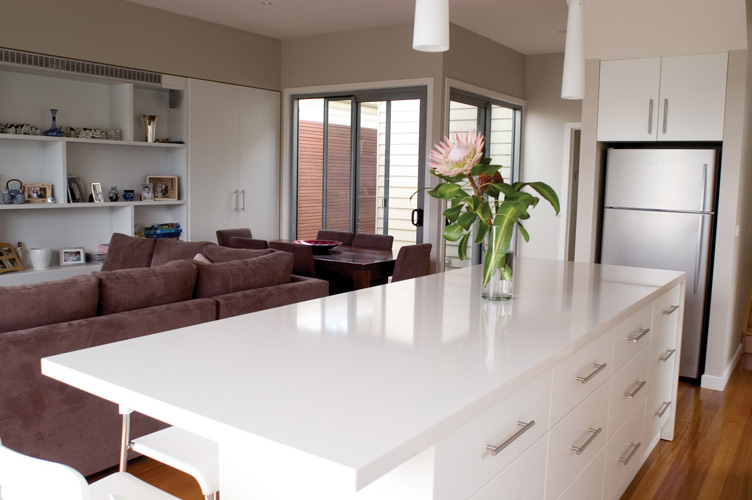
- October 23, 2011
- Home Buying, Home Improvement, Home Selling, Investment Opportunities, Local Market Conditions, New Homes, Our Blogs
- No Comments

As the housing market continues to grind through its fourth year of a protracted correction, many homeowners are wondering whether it makes sense to renovate their existing homes, since trading up is no longer a real option. On the surface, there are plenty of generic good reasons to renovate — it helps to increase property values and makes the homes easier to sell whenever that day comes.
However, from a financial returns perspective, it’s less clear whether a renovation of dated, but otherwise functional home features, is a good investment. For that, we’ll need to look at some past data. Nationally, a typical renovation that doesn’t increase the size of the home will generate about a 65-70% return on investment. So,that means a homeowner would take an immediate 30-35% loss on the cost of a renovation. In return, the homeowner would get some additional enjoyment out of the home, whether it’s a true additional function or just plain self-satisfaction.
Those return percentages are just averages as actual returns vary between 50-100% depending on the type of job or the neighborhood where the home is located. So, while not all renovations will lose money, the vast majority will. That harsh reality applies to investors who flip houses as well. So, it only pays for them to pick houses with non-functional features where they can get closer to 100% of the cost in additional value. Even then, they still need to get house for the right price to help cover the loss on the renovation.
Then, for a homeowner, does it ever make sense to renovate? That depends on how much of a lifestyle impediment the current home imposes. If a homeowner needs more space to accommodate a growing family, then it may make more sense to add some square footage rather than try to buy a new home. To determine the breakeven point for such a renovation, a homeowner would just have to compare the cost of renovation with both the value added by the addition and the expected transaction costs for selling the current home to buy a new home, the next best alternative. Since typical commissions are between 5-6%, a homeowner could easily spend that amount on a renovation and still come out ahead, if the only other option were to buy another home. And, if the renovation adds new space, that budget can run even higher.
Currently, both material and labor costs have been falling along with the rest of the housing market so historical return metrics may understate today’s return on investment. So, it may be possible that a renovation done in 2012 may yield closer to 80-85% return. It’s better, but there’s still a immediate loss.
Otherwise, the conventional argument that a renovated home will sell faster only adds marginally to the returns. So, rather than think that a fabulous new kitchen will pay for itself 5-7 years from now by getting the house sold a month earlier, just remember that tastes change and things get old. Unless you’re looking to sell immediately, you should only invest in your home for your own enjoyment’s sake.
We have two examples, a renovation and an addition, to help illustrate. For both these examples, the assumption is that the homeowner’s next best alternative is to trade-up to a new home.
Example 1: Renovation
Current market price of home $500K
Typical transaction cost for a sale $30-40K
(This covers real estate broker commissions of 5-6% and the closing costs involved in a sale.)
For this example, the maximum breakeven budget for a renovation would be $100K.
New market price of home $565K
Net return $0K
Based on an average return of 65-70%, the homeowner would increase the value of the home by about $65K for an investment of $100K. The difference of about $35K would be equivalent to the transaction cost of a sale to buy a new home. Any renovation less than $100K would yield a positive return on investment.
Example 2: Addition
Current market price of home $500K
Typical transaction cost for a sale $30-40K
(Same as before.)
For this example, there’s no single breakeven point, since most additions will return at least 100% of the cost or better.
Value added by $100K addition $100K
New market price of home $600K
Net return $30-40K
Since the homeowner didn’t have to lose any money in the transaction costs, an addition that increases the value of a home dollar for dollar will actually save money. In theory, the addition can be as large as the neighboring market will support, with larger additions generating higher returns.
